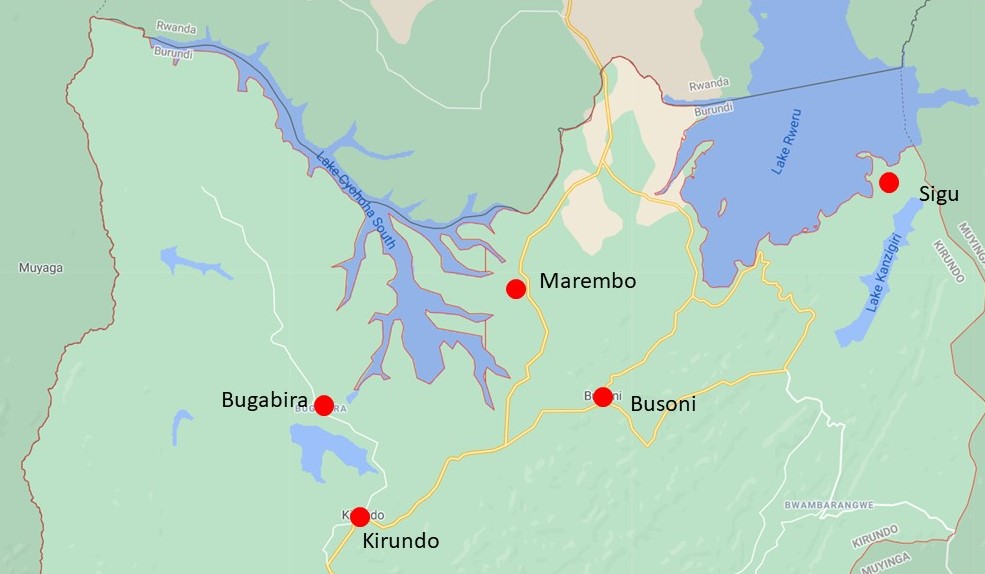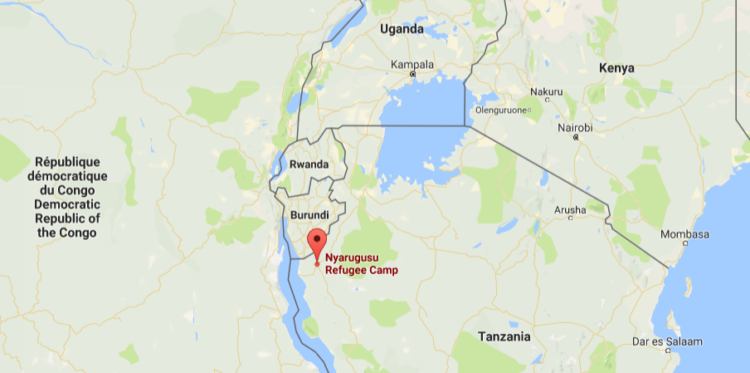Water
In rural areas of Togo, only 40 pct. of the population has access to drinking water from an improved water source within 30 min walking distance. Open defecation is widely practised, which poses a significant health risk, and lack of hygiene awareness is a threat to water quality.
The first joint project provided clean water, improved sanitation and hygiene to approximately 4,200 people in the 3 villages of Haïto, Bayakopé and Guedèglèlè in Togo’s Plateaux region in 2015. With a budget of 2.1m DKK, the project established three solar powered safe water systems in the three villages, and included construction of family and school latrines as well as hygiene awareness raising locally. The projects were revisited and repaired/extended in 2016-2017. Learn more here.
- In 2017, the Foundation granted 3m DKK for Phase 2: “Healthy children, healthy communities”reaching 5 communities (8.000 persons) in Haho district. Learn more here.
- In 2018, the Foundation granted additional 10m DKK to reach another 25-30,000 persons in 10 communities in the Plateaux Region in 2019-2021.
- In 2018, we have also initiated a pilot project to test how an environmentally friendly molten-salt battery backup solution can eliminate the need for storeage tanks. It could also be a model solution for scalable community water systems that can add new modules when the community’s need for water increases.
Find out more about our collaboration in the Foundation’s Annual Review 2018: Commitment, partnership and flexible collaboration methods.
PlanBørnefonden is not a WASH NGO per se, but the organisation fights for girls rights globally and focuses on long-term development work and social sustainability through local partnerships and cooperation in four key intervention areas:
- Education,
- Children’s health,
- Young people’s economic and social potential and opportunities
- Children’s development.
The organisation works within each community for 15 to 20 years to secure secure sustainable impact. Responsibility for the activities is transferred to the community and the authorities step by step. This approach aligns very well with the Foundation’s values of creating sustainable change.
Burundi is one of the poorest countries in the world. Approximately 80% of the estimated population of 10.88 million lives below the international poverty line (1,90 USD/day). Subsistence farming is still the main livelihood but because of low productivity and climate variability, among other factors, people struggle to secure their livelihoods. Kirundo Province lies in Northern Burundi, an area where few other international NGOs operate. Water and sanitation infrastructures were destroyed throughout the country during the decade-long civil war, ending in 2003.
Phase 2: expansion and infrastructure
In 2019, the Poul Due Jensen Foundation granted approximately 1 million EUR towards a second phase of the programme.
- Phase 2 ran for 16 months as of May 2019. Unfortunately, Norwegian Church Aid has pulled out from Burundi, and system monitoring is currently provided by Water Mission.
- The target beneficiaries are 36-54,000 people in 8-12 villages, including 10 health centres and 13 schools in Bugabira, Kirundo and Busoni communes, who will experience a reduced rate of waterborne diseases.
- Phase 2 will also go back to the sites of Phase 1 and work with all of the communities to ensure efficient and integrated management of the water infrastructure
- Remote monitoring will also be implemented in all water systems to follow the systems’ performance and the groundwater level
The community members previously drew water from unclean water sources like the Cohoha, Rweru and Kanzigiri lakes in the dry season and from rooftops during the rainy season. The few existing water wells were destroyed throughout the country’s decade-long civil war ended in 2003 and many have not been repaired since Kirundo province faces a lack of funding for the most basic services. In addition, despite best practices in the water supply sector recommending chlorination for public water systems; chlorine is at present not available in Kirundo market and there is no demand for it.
Phase 1: Marembo Health Centre
Phase 1 (2017) of this water, sanitation and hygiene (WASH) project provided safe drinking water to patients of Marembo Health Centre and to the population of two close villages, Bunyari and Sigu, with a population of 850 and 740 people. Marembo Health Centre serves 35,000 women, men, girls and boys each year, including people in the immediate catchment area plus those living further away for whom this health centre is the only facility accessible. 7-10 babies are born there each week. The safe water project established 3 solar-powered water pumping systems, a waste disposal system and latrines in the health centre, to significantly improve sanitation.

Before our intervention, Marembo Health Centre did have not access to clean and adequate water, as their water supply systems were non-functioning. Community members therefore drew water from unclean sources like the nearby Cohoha Lake in the dry season and from their rooftops during the rainy season.
Results
- The Marembo Health Centre and people in the immediate catchment area have access to 12 cubic meter per day of clean and adequate potable water for drinking and for domestic use.
- Bunyari and Sigu villages now have access to 10 cubic meters each of clean and adequate potable water deserved through 2 public boundary mark fountains equipped with 2 taps installed near their houses. They have stopped since to use the rude water from Cohoha and Rweru lakes for drinking.
- Besides, thanks to four ventilated improved pit latrines equipped with 4 bathrooms and 2 handwashing stations constructed for Marembo Health Center; patients visiting the health center have access to adequate sanitation services helping the patients to prevent from waterborne diseases.
Key challenges and learnings from Phase 1
As there is only one drilling company in Burundi, NCA had to reach out to companies outside of Burundi to get three quotations for the drilling work. This delayed the project a fair bit, helped along by fuel shortages in the spring of 2017.
However, as a result of the exercise of identifying companies outside of Burundi, NCA has developed a small database of potential specialized drilling companies to keep on hand for future projects. In order to overcome fuel issues in the future, NCA has signed a contract with the World Food Programme covering delivery of fuel for key activities.
Finally, as the underground water yield was limited and not sufficient to all households needs, the locals took the decision to use this clean water for drinking as a priority and, only in case of surplus, for other domestic uses.
Read more about NCA’s work in Burundi at kirkensnoedhjelp.no
The project expands the current scope of SE4RC so that the solar water pumping can be extended and adapted to supply safe drinking water to the communities. This will be achieved by an initial scoping project in four Malawi communities, including hydro geological and geophysical investigation on 15 sites to identify the location of 8 new boreholes to supply safe drinking water. Sustainable Energy for Rural Communities (SE4RC) is helping families survive future droughts and to earn a living through connecting irrigation schemes to solar-powered mini-grids. The grids will generate over 200KW to power schools, clinics, businesses and irrigation schemes – transforming the education, health, well-being and earning opportunities of many local communities. SE4RC is executed in collaboration with, and support from, local communities, local and international partners, the private sector and the government in Malawi and Zimbabwe.
Partner
The implementation is secured by the Foundation’s strategic partner, Practical Action. Practical Action is an international NGO that uses technology to challenge poverty in developing countries. The NGO has extensive experience with solar pumping in rural areas.
Poul Due Jensen Foundation
The project is partly funded by the Poul Due Jensen Foundation through a 420,000 GBP grant. The Foundation is committed to funding sustainable safe water projects for poor, rural communities in developing countries, and to stay engaged for as long as it takes to ensure resilient and sustainable access to safe and affordable drinking water (Global Goal 6.1).
Nyarugusu and nearby Nduta and Mtendeli refugee camps are situated in northwestern Tanzania, close to the borders of DR Congo and Burundi. In 2015, an influx of Burundian refugees increased the population in Nyarugusu and its neighbouring camps to over 250,000 refugees. The current water infrastructure is ageing and heavily underdimensioned and thus unable to serve the growing demand in the camps. Furthermore, the existing system is diesel-driven and hence very expensive to operate.
 The world’s largest solar powered water system
The world’s largest solar powered water system
From 2017-2020, Water Mission and the Poul Due Jensen Foundation will replace the existing water infrastructure with a modern, solar powered safe water system; the world’s largest to date. The estimated cost will be 5.3m USD. In total, we aim to serve 313,000 refugees in Nyarugusu and the neighbouring camps with safe water.
The project intends to not only lower the running costs of the camp, but also improve health and living conditions significantly. The Nyarugusu camp is operated by UNHCR in collaboration with OXFAM.
More data – UNHCR operations in Tanzania.
Reaching out to neigbouring communities
Along with the work in the refugee settlement, we also reach out to rural communities in Western Tanzania, building community water projects in a number of poor villages.
The implementation both inside and outside the camp is secured by the Foundation’s strategic partner, Water Mission. Water Mission is a non-profit, Christian engineering organisation that designs, builds and implements safe water, sanitation and hygiene solutions for people in developing countries and disaster areas.



 The world’s largest solar powered water system
The world’s largest solar powered water system